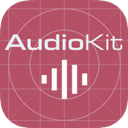Unlocking Audio Potential: The Best RtAudio Alternatives for Developers
RtAudio is a powerful and popular set of C++ classes designed to simplify real-time audio input/output across various operating systems. Its object-oriented C++ design, common API, and extensive features like automatic data format conversion and multi-API support make it a go-to choice for many developers. However, specific project requirements, platform preferences, or feature needs might lead you to seek out an RtAudio alternative. This article explores some of the top contenders that offer similar, and in some cases, enhanced functionalities for your audio programming endeavors.
Top RtAudio Alternatives
Whether you're building a game, a music application, or a specialized DSP tool, finding the right audio library is crucial. Here's a curated list of excellent RtAudio alternatives that can streamline your development process and provide robust audio capabilities.

PortAudio
PortAudio is a highly regarded cross-platform, open-source audio I/O library that provides a straightforward API for recording and playing sound. It's an excellent RtAudio alternative for developers working on Free, Open Source, Mac, Windows, and Linux platforms, offering a simple callback function for audio processing, making it incredibly versatile.

JUCE
JUCE stands out as a comprehensive C++ class library for building rich cross-platform applications and plugins across major operating systems. As a Free Personal solution for Mac, Windows, and Linux, it serves as a powerful RtAudio alternative, especially for developers needing extensive developer tools and cross-platform compatibility beyond just audio I/O.

Wwise
Wwise is a robust game audio engine designed to give artists more control and save programmers' time. This Freemium RtAudio alternative supports Mac, Windows, Linux, Android, iPhone, Windows Phone, iPad, and tvOS, making it ideal for gaming applications where advanced audio programming libraries and comprehensive sound design features are crucial.

FMOD Ex
FMOD Ex is a proprietary audio library renowned for playing diverse music file formats across many operating system platforms, widely used in games and software applications. Available as Free Personal for Mac, Windows, and Linux, FMOD Ex is a strong RtAudio alternative for developers seeking a robust audio library with a versatile API and extensive developer tools.

AudioKit
AudioKit is the leading open-source audio framework, empowering millions of app installs by enabling developers to quickly add professional audio functionality. This Free and Open Source RtAudio alternative is specifically for Mac, offering powerful developer tools and a rich library for those focusing on Apple's ecosystem.

SoLoud
SoLoud is a portable C/C++ audio library designed to work across various platforms including Windows, OS X, Linux, and Android. As a Free and Open Source, self-hosted RtAudio alternative, SoLoud provides a versatile programming library, making it a solid choice for developers prioritizing portability and a comprehensive audio feature set.

KFR
KFR is built for developers who need a powerful toolkit for audio and DSP applications, packed with ready-to-use C++ classes and functions. This Freemium, Open Source RtAudio alternative supports Mac, Windows, and Linux, offering strong cross-platform capabilities, developer tools, and a comprehensive library for complex audio processing tasks.

Photon Micro GUI
Photon Micro GUI is a modern C++ (esp. C++14 and C++17) UI library featuring resolution independence, HDPI support, and modularity. While primarily a UI library, its developer tools for Mac, being Free and Open Source, can complement audio development workflows where graphical interfaces are needed alongside a separate audio backend, serving as an indirect RtAudio alternative or companion.
Choosing the best RtAudio alternative depends heavily on your specific project requirements, target platforms, and desired features. Each of these libraries offers unique strengths, from cross-platform compatibility to specialized gaming audio engines or comprehensive DSP toolkits. Explore their documentation and community support to find the perfect fit for your next audio-driven application.